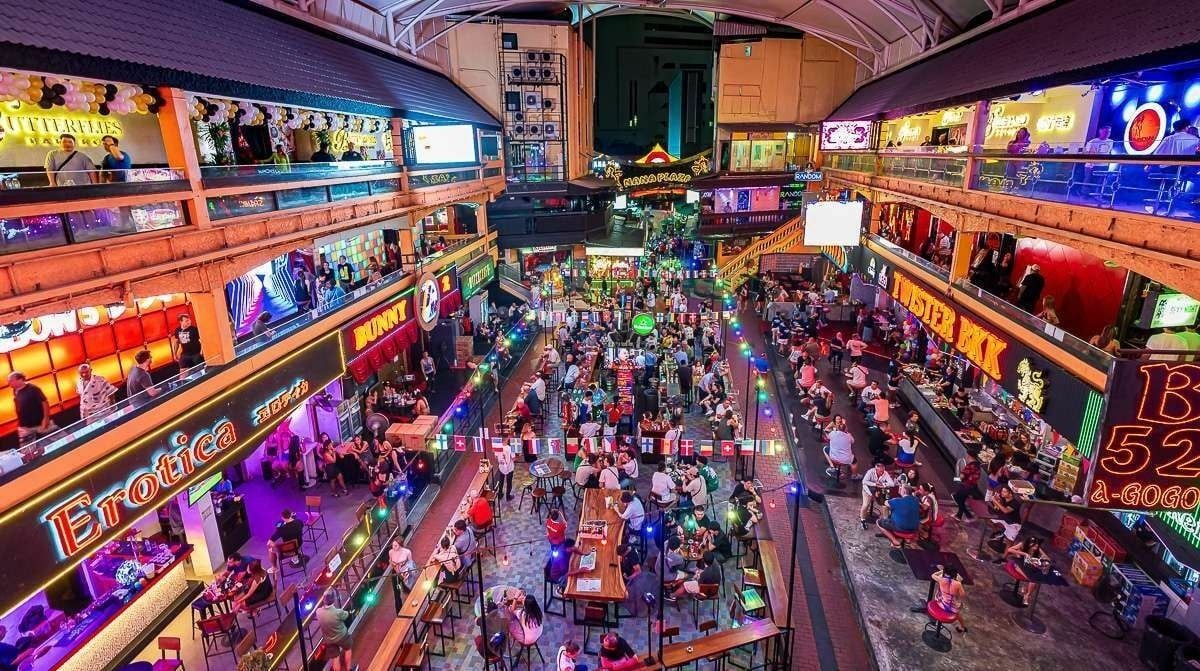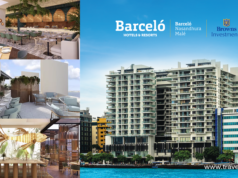Sri Lankan tourism is gradually gaining momentum, attracting a significant number of tourists to the island. While there are numerous daytime activities available for tourists, the options for nighttime engagement seem somewhat limited. This is particularly noteworthy considering the increasing influx of tourists into Sri Lanka.
In response to this situation, State Minister of Tourism Diana Gamage has emphasised on the significance of nightlife for tourists, stating that the concept of nightlife can potentially increase tourism industry revenue by 70%.
Speaking to The Sunday Morning Business regarding the promotion of nightlife in the country, Sri Lanka Tourism Promotion Bureau (SLTPB) Chairman Chalaka Gajabahu defined nightlife in two ways, with one aspect involving clubs, bars, and pubs while the other aspect involves showcasing Sri Lankan culture. Therefore, there is a need to develop a programme for that purpose, he said, adding: “Drawing inspiration, for instance, from Thailand, where daily shows feature traditional Thai dancing and other cultural elements, we can aim for an approach with a fusion.”
Even Tripadvisor only lists nightclubs, bars, pubs, and casinos in its compilation of nightlife activities in Sri Lanka. It becomes evident that there is potential to enhance nightlife activities for tourists in Sri Lanka.
Gajabahu stressed on the importance of promoting Colombo nightlife: “When it comes to nightlife in Colombo and its outskirts, a lot is happening down south. Private parties are a common occurrence, but it’s crucial for Colombo to enhance its nightlife to engage tourists more effectively. It’s not just about attending nightclub events; there are opportunities for cultural immersion, fusion experiences, and various other aspects that we can focus on. We are currently in discussions with specific parties in Colombo to collaboratively work towards improving the nightlife.”
He also noted that the relevant implementations needed to be done gradually, with last year being a period of recovery while the main focus for this year was on the numerous events scheduled across the country.
“For instance, in March and April, we are hosting a massive water sports festival in the south to engage and showcase the impact of water sports to the audience. Additionally, the Minister of Tourism and Sports is actively involved in the processes, exploring how cricket can also be involved,” Gajabahu further noted.
He said that a tournament named the ‘Legends Cricket Tournament’ was being organised, which would be played in Sri Lanka, featuring several legendary retired cricketers from nearly eight countries. The tournament is scheduled to be played in March at the Pallekele International Cricket Stadium in Kandy.
Gajabahu noted that many private sector companies were contributing to the entertainment sector with events such as drumming festivals, musical shows, and dance groups performing in Sri Lanka, with all these endeavours expected to contribute significantly to the country’s improved position going forward.
He further addressed the matter of ensuring the safety of tourists when they engaged in nightlife activities: “The Police are officially present everywhere, as evident from their widespread programmes. If you observe the streets of Colombo or any outlying areas, you’ll notice a consistent Police presence, even on smaller roads, ensuring public safety. In addition, the Tourist Police play a significant role in engaging with various areas, particularly in the tourism zone. They actively address issues and assist tourists in trouble. The dedicated efforts of our Tourist Police involve trying to resolve problems and ensure a positive experience for visitors.”
Need for investment
Meanwhile, Sri Lanka Tourism Development Authority (SLTDA) Chairman Priantha Fernando noted that there was a need to create significant opportunities for tourists, with entertainment playing a crucial role in achieving this goal. For instance, hosting musical shows featuring international artists can attract a diverse audience, including individuals from countries such as India, and promoting such events not only boosts tourism but also contributes to the local economy.
Beyond musical performances, Fernando pointed out that there was a need to enhance the overall gourmet experience, which involved curating diverse culinary experiences to cater to different tastes.
“Currently, aside from casinos in Colombo, there are limited options for foreigners to spend both money and time. To address this gap, we must encourage the private sector and foreign investors to play an active role. While we, as a facilitator, can contribute to creating an enabling environment, the private sector and foreign investors must give their contribution. As the demand for such experiences increases, it is likely to attract greater interest and Foreign Direct Investment (FDI). This collaborative effort will result in the creation of unique opportunities for both locals and visitors alike,” Fernando said.
Fernando emphasised on the importance of creating recreational activities for the tourists as well: “There should be more recreational activities available for tourism and we can facilitate the necessary approvals and recommendations, but the required investment must come from the private sector or through FDI,” he said, adding that the Minister was currently focusing on these areas.
Fernando pointed out that over the last two to three years, the Sri Lankan Rupee had depreciated against foreign currencies, causing the spending power of foreigners to increase. He explained: “Something that cost Rs. 1,000 a few years ago can now be obtained for Rs. 600 due to the appreciation of the dollar and other currencies against the rupee. Therefore, we need to create more opportunities for tourists to spend their money.”
Areas for tourism development
Noting that Colombo was an important area that needed focus for nightlife activities, Fernando also stressed on the fact that there were no nightlife activities in areas such as Kandy, Dambulla, Habarana, and Sigiriya.
“In areas like the Cultural Triangle – specifically Dambulla, Habarana, and Sigiriya – there are approximately 5,000 rooms, taking into account the capacity available in the informal sector. This means that at any given time, there will be about 6,000-7,000 tourists in that area. However, after 5.30-6 p.m., there are hardly any activities for them. Recently, a cultural centre has emerged in Habarana featuring cultural performances every evening. Nevertheless, this is limited to around 600-700 tourists. Therefore, there is a need to create different activities to provide tourists with an hour-long experience and encourage them to spend money,” Fernando emphasised.
Even in Kandy, the evenings were relatively quiet, with tourists tending to remain within their hotels, he further noted. However, he noted that the options for more activities were narrow, apart from the Kandy Cultural Centre’s cultural shows.
Fernando noted the existence of a plan with the involvement of Hilton Hotels & Resorts to transform the old Bogambara Prison area, consisting of about seven acres, and develop a set of hotels. “We are yet to receive the proposal, but the project could start soon. Similarly, creating more opportunities for tourists to spend money is crucial. For instance, we can generate a greater demand for handicrafts, creating a multiplier effect where the benefits filter down to the communities by creating platforms for them to showcase and sell their products. This will also complement the other activities that the State Minister of Tourism has been talking about,” he said.
Hoteliers’ participation
As per State Minister Gamage’s statement on the Official Government News Portal, given the diverse origins of tourists, including those from the UK, France, and Germany, there is a need for flexibility in entertainment hours to accommodate varying cultural norms and preferences. The Minister has urged stakeholders to recognise the importance of extending entertainment hours to enhance the overall tourism experience and attract more visitors to the country.
The Hotels Association of Sri Lanka (THASL) President M. Shanthikumar told The Sunday Morning Business that the hotels often hosted their own nightlife activities. “As stakeholders in the hospitality industry, hoteliers will welcome any legalised activities that contribute to the diverse offerings in various parts of the country, particularly in Colombo,” he said. This could include the introduction of casinos, international musical shows, and a variety of other events to further enrich the cultural and entertainment scene in Colombo, he added.
Shanthikumar also pointed out that the Tourism Ministry’s intention was to establish region-specific attractions, such as in the cities of Colombo and Galle, which would serve as a draw for tourists seeking night entertainment, enhancing the overall nightlife experience.











